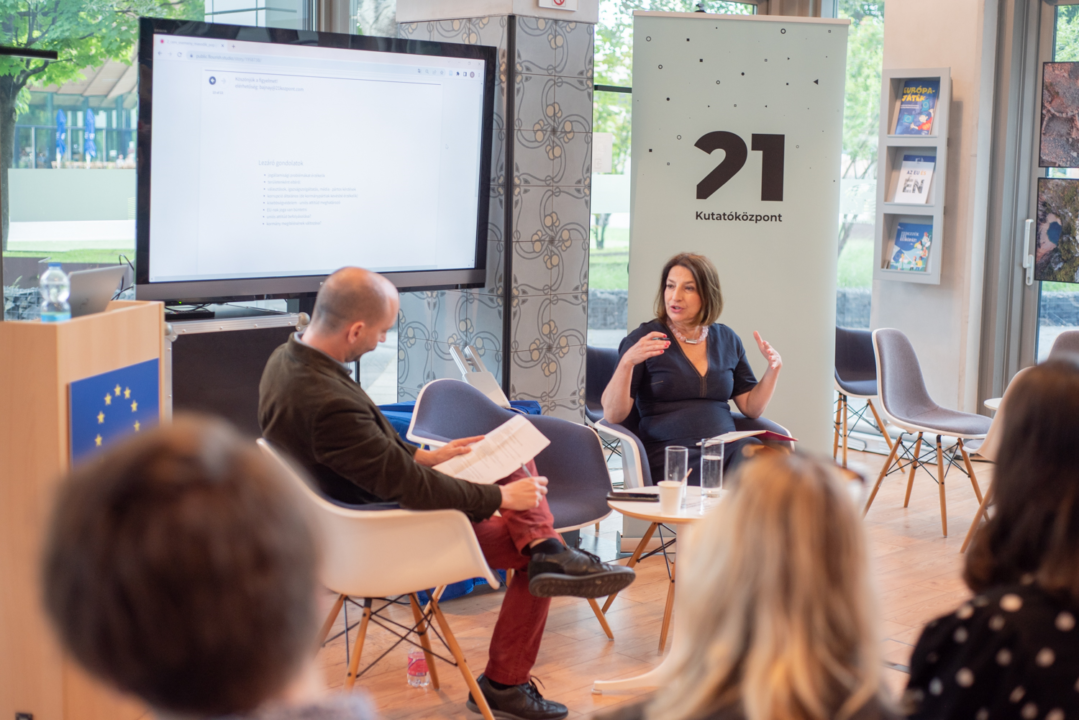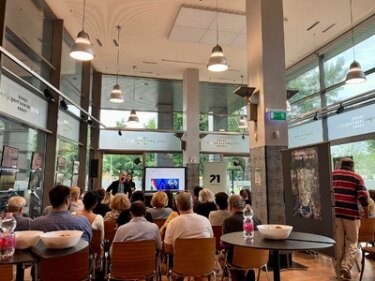Public presentations of the second waves of citizens´ consultations
Following the first wave of consultations, an integral part of the project´s research, the second round of the citizens´ consultations took place during April 2023, on the topics of Covid-19, the European answer to the pandemic, and the Rule of Law, with focus on the media independence, corruption and minority rights. The consultations were carried out in the form of in-person individual interviews with citizens in the 4 countries, and with additional online participants. In order to gather the feedback from the citizens, we prepared a set of questions on the topics of covid-19 and EU´s response to it, and the various aspects of the rule of law, which the participants of both the in-person and online interviewees answered. During the in-person interviews there was additional time dedicated to the feedback and questions of the citizens – which varied from input to the topics, the format to the questions on the project and its goals as a whole.
The results of the consultations form a basis for one part of our research and are being used in the further activities of the RevivEU project. You can read more about the results and the consultations in the article dedicated to it in the Research section. One of these activities were once again public presentations of the results from the second wave of consultations, meant for various partners, stakeholders, media and the general public, taking place in each of the countries. Find out more about those below.
Slovakia
The public presentation of the results of the citizens´ consultation on Covid-19 and Rule of Law in Slovakia took place on 20th June 2023 in the premises of ART BOOKS COFFEE in Bratislava. Michal Vašečka and Viera Žúborová were the main hosts, presenting all the main conclusions of the consultation to the participants and then discussing and analysing them together.
The participants listened carefully, asked great questions, and contributed to the debate. Several results caught the attention of the participants, being literally shocking to them in many ways. For example, the consultation showed that there is a huge mutual distrust among Slovaks – up to 70% of people think that other people cannot be trusted. A surprising result was also the growing trend of Euroscepticism, with up to 35% of respondents being in favour of Slovakia leaving the EU. In Slovakia, there has been a long-standing lack of trust in institutions, which our survey only confirmed and showed that most people distrust members of parliament and the president.
The recording of the event is available online, in Slovak:
Poland
The public presentation of the results of the public consultations in Poland took place on June 30, 2023 in the premises of Państwomiasto social and cultural hub. Miłosz Hodun was the main host of the event. He presented the results of the public consultations and moderated a discussion with the public.
Unexpectedly, the participants were very interested in the research methodology (only one of them was an expert in sociology/quantitative polls). They asked multiple questions about how the indexes were created (e.g.OTS, EUA, EUK) and requested explanations about particular questions that were used in the construction of the indexes. In general, event participants were surprised about the levels of trust Polish people declare in different institutions. For many, the most surprising was the fact that NATO and the army are the most trusted, and the relatively high position of the police (especially in the context of the reaction of the police after the pro-abortion and LGBTQI+ rights protests.)
Event participants found it very interesting that public consultations participants believe that the least protected minorities in Poland are people with disabilities (46%) and the homeless (46%), and that 36% say it is not protected enough. Additionally, they were surprised that so many participants of the public consultations believe that the rights of Jewish and Roma people and protected (two members of the Jewish community were present and gave longer comments about their experience).
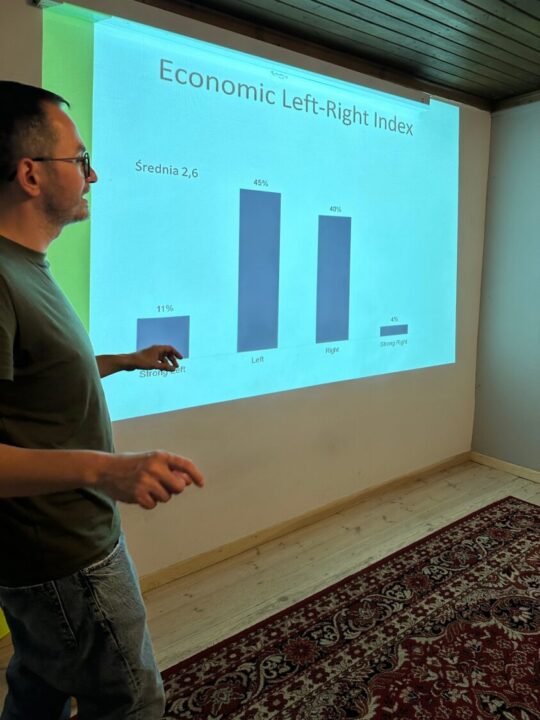
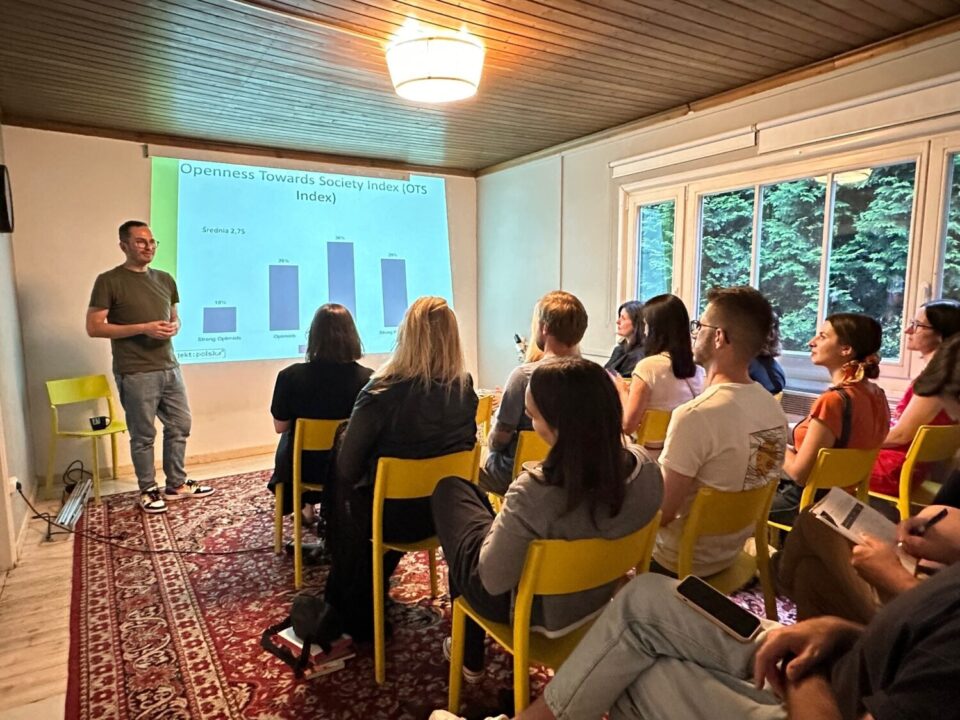
Czechia
The presentation of the results of the second wave of citizens´ consultations in Czechia took place on 12.6. in a venue in Prague´s Old Town, with the event being titled The Czech Attitudes towards the Rule of Law, Pandemic of Covid-19 and the European Union. The presentation had a diverse group of participants in the audience, including civil society experts, employees of the EU institutions, academicians as well as the general public.
In the first part of the event the results of the citizens´ consultations were presented by Jaromír Mazák, Director of Research at STEM Institute for Empirical Research, and by Vít Havelka, senior researcher at EUROPEUM. This was followed by the Q&A and discussion session with the audience.
Most of the discussion was dedicated to the general attitudes towards the EU, and how these attitudes than manifest in the further results. Most were not surprised by the fact that the more pro-EU respondents are slightly more concerned with the protection of minority rights, though they did sound their surprise at the high number of people that think that minority groups are over-protected. They also discussed the topic of corruption and the fact that most respondents didn’t feel like a bribe was expected from them. Given the background of the participants, their attitudes tended to be more EU – and “western-values” oriented, but they expressed interest in hearing about the views of the citizens both outside of Prague and the big cities and also not actively involved in either EU affairs, citizen sector, or altogether less interested in the politics. As one of the topics was the question of Rule of Law, the participants also expressed interest in the results of the consultations in the project countries.
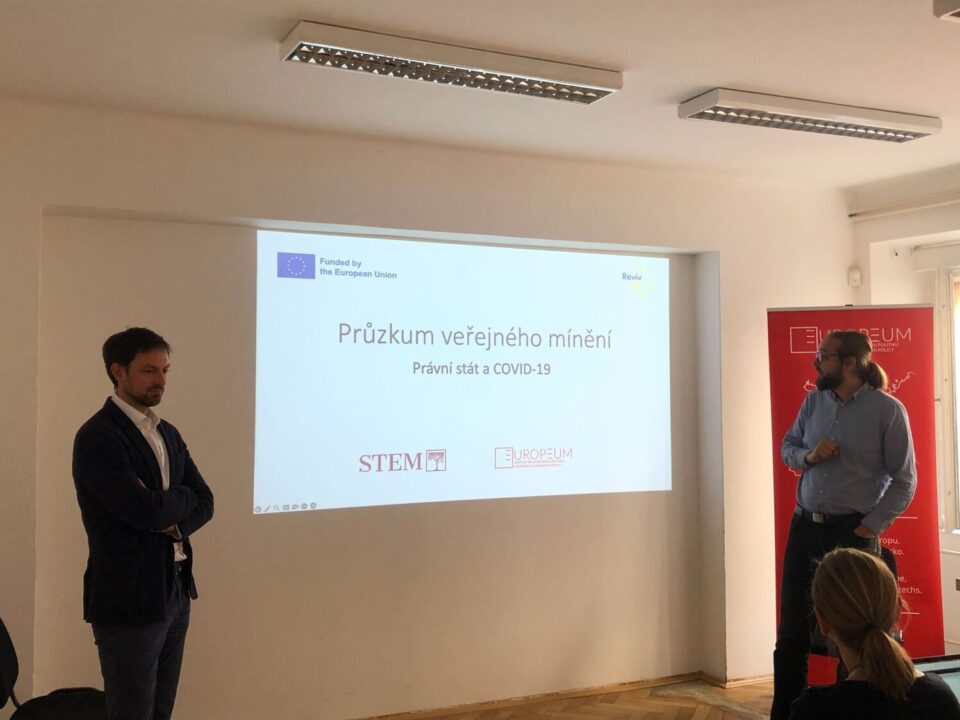
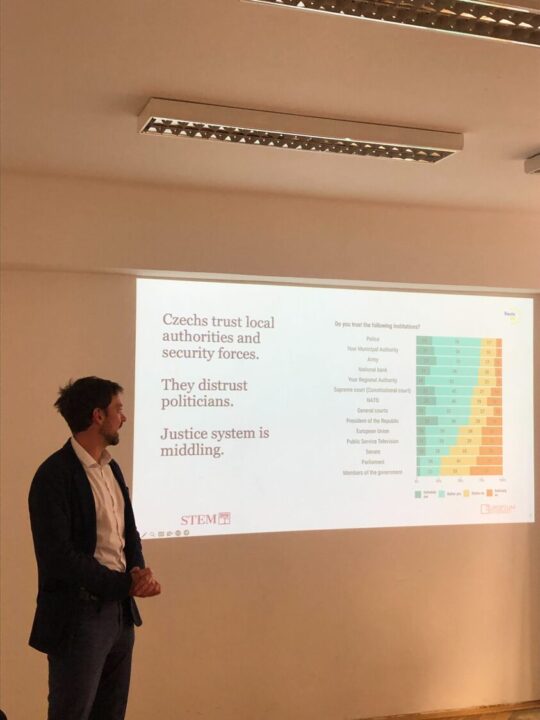
Hungary
For the presentation of results of the second Hungarian citizens´ consultations the participants met on 27.6. during an event titled “The end of a beautiful friendship? Hungarians’ love-hate relationship with the European Union” in Budapest. The audience was first presented the results of the consultations and then had a subsequent discussion with Zsuzsanna Szelényi, head of the Leadership Academy of the Democracy Institute at Central European University.
They mainly discussed questions like How is the EU membership perceived among Hungarians beyond the “stay or leave” dilemma? What are the areas where Hungarians perceive the EU to have too much power, and what are the areas where they demand further integration? How do people perceive democracy, the rule of law, or corruption at different levels of society?, and the general attitudes of Hungarians towards the rule of law aspects in Hungary and the European response to the covid-19 pandemic.
